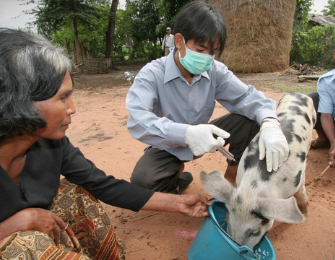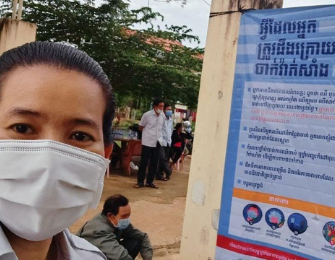National Regulatory Authorities (NRAs) are responsible for ensuring that medical products meet internationally agreed standards of quality, safety, and efficacy and continue to comply with these standards whilst marketed. Regulators in low resource settings often lack the ability or capacity to implement core functions, such as market authorisation and pharmacovigilance, effectively. This can result in poor regulatory practices, unnecessary delays and the use of poor quality or inappropriate products. These issues can hinder national disease control efforts and drive antimicrobial resistance, presenting health security threats to neighbouring countries.
This program responds to these identified needs and has the goal of strengthening the capability of NRAs to increase the availability of safe and effective medicines and medical devices through improved regulatory practice and regional collaboration. Accelerating the availability of critical essential medical products, such as those used to combat drug-resistant malaria and tuberculosis in the region, was identified as a Program priority.
The RSP has two components, namely:
- Strengthening the capability of target NRAs to increase the availability of safe and effective medical products.
- Ensuring stakeholder coordination to promote regional collaboration on regulatory practice.
A number of activities have occurred throughout the program that have led to the approval of high quality, safe and effective medicines. Two examples include:
- In 2019, the Thai FDA successfully registered the antimalarial medicine tafenoquine with the support of the TGA. This was achieved through multiple videoconferences which involved technical discussions around the TGA’s evaluation and a visit of Thai delegates to the TGA, resulting in an expedited approval. Thailand then led the ASEAN joint assessment for tafenoquine. Tafenoquine is now being rolled out in pilot programs across Thailand. This exercise in reliance and expert-to-expert discussions built trust and mutual confidence.
- In 2022, the TGA worked closely with the PNG regulator on the evaluation of a dossier supporting the registration of chloramphenicol, an antibiotic that is used for the treatment of typhoid and cholera, hopefully paving the way for high-profile assessments such as the anti-malarial primaquine. The TGA performed a full evaluation, developed an evaluation report template based on ASEAN Common Technical Document format and delivered a series of virtual workshops to discuss and explain the evaluation process and areas of concern.




